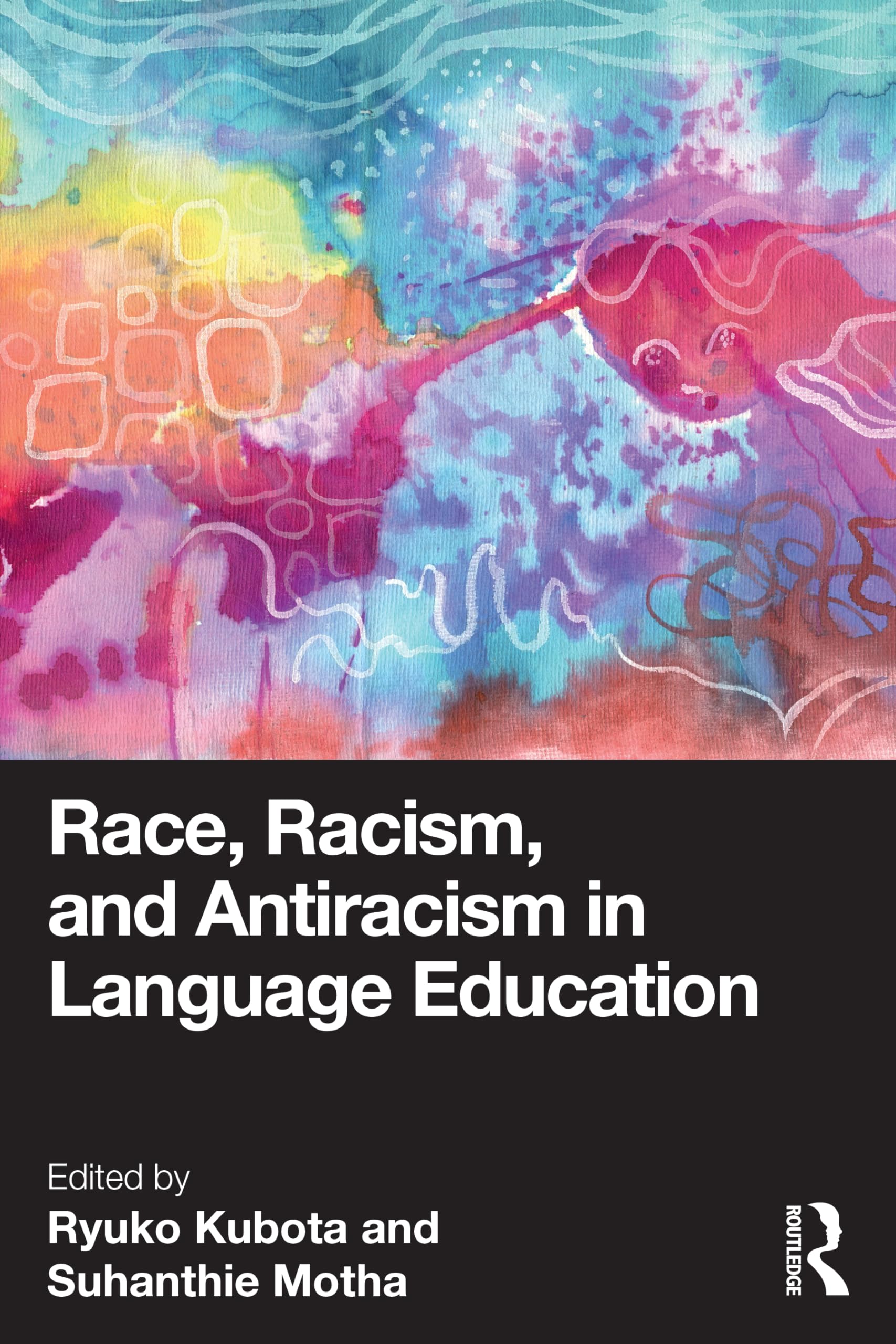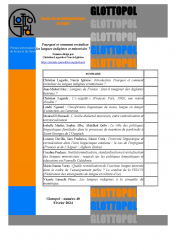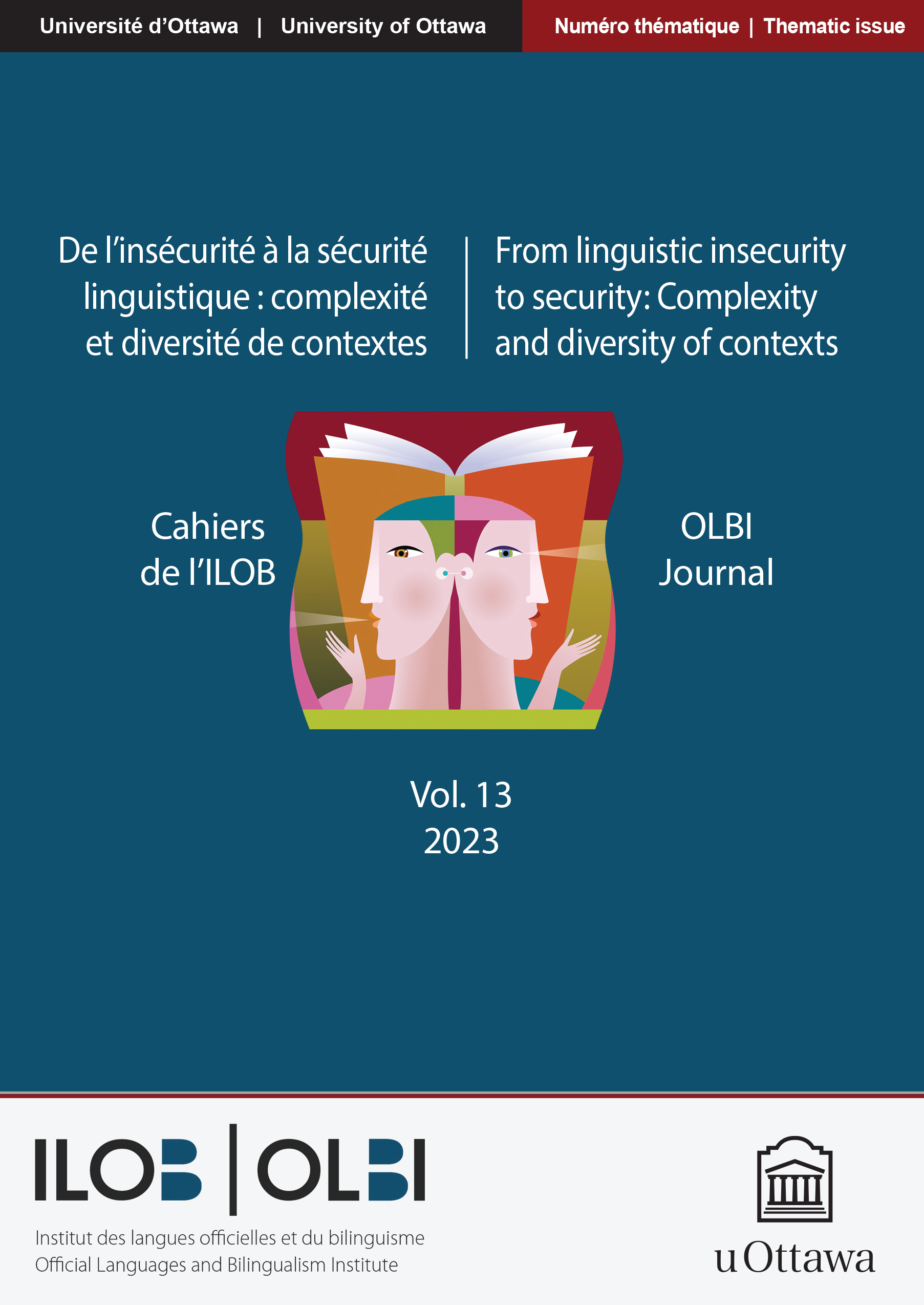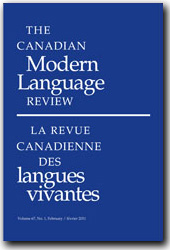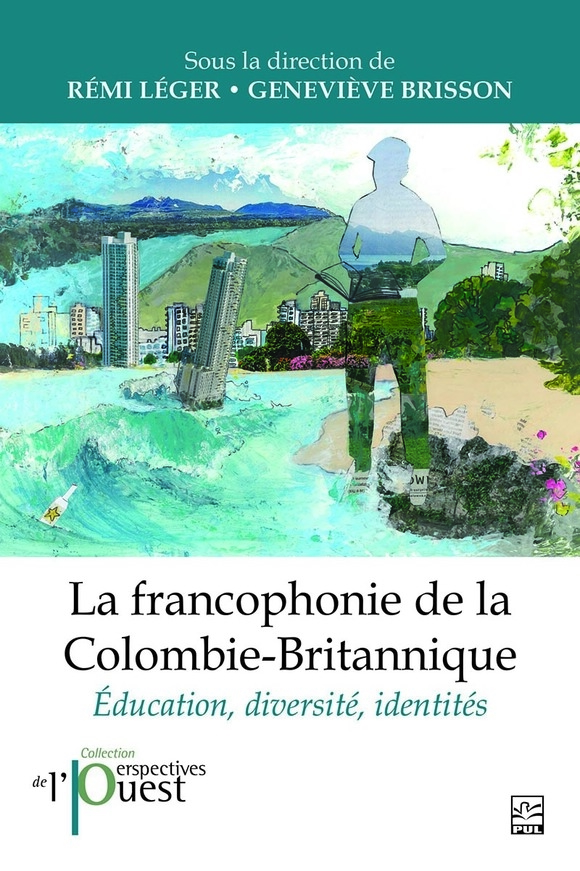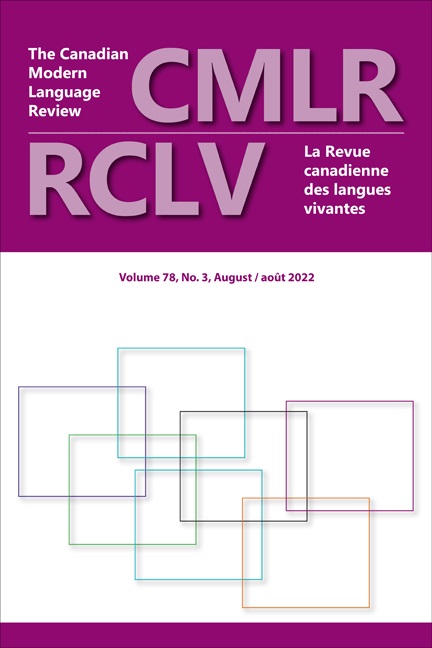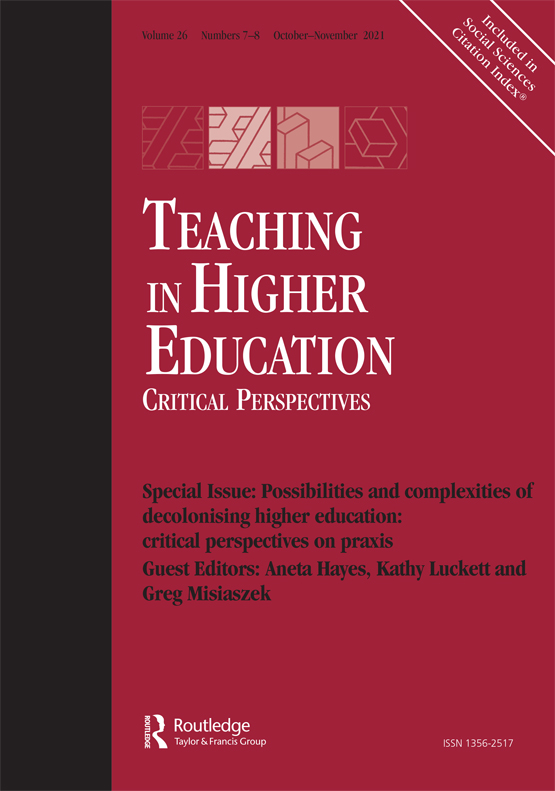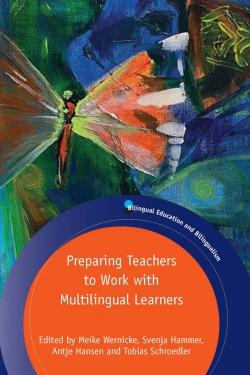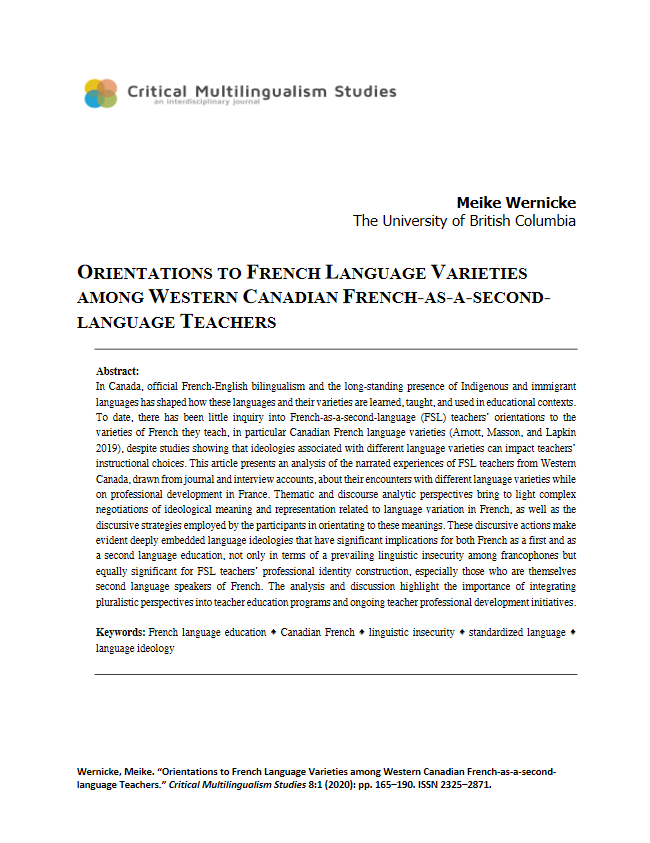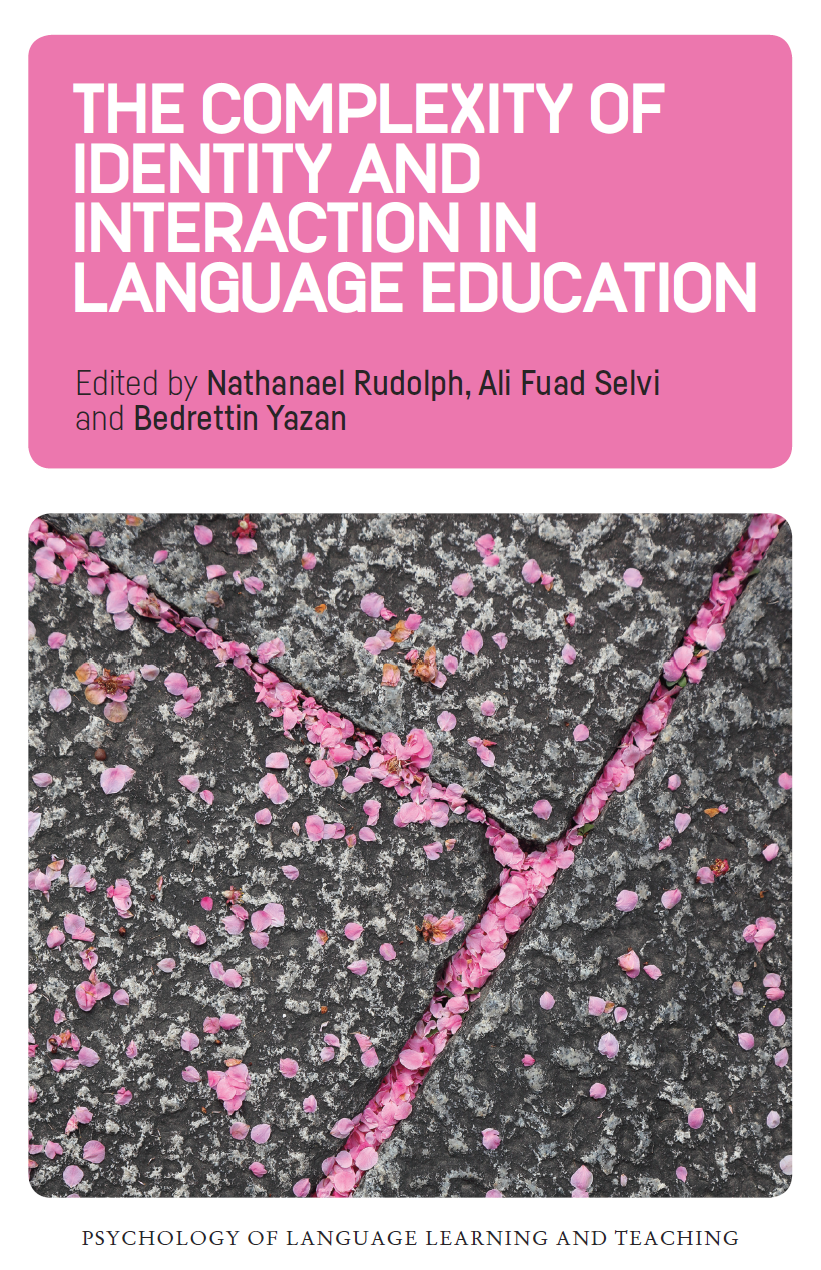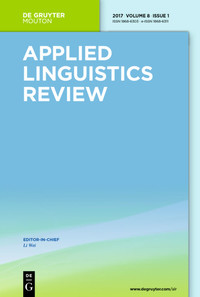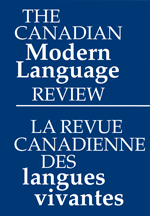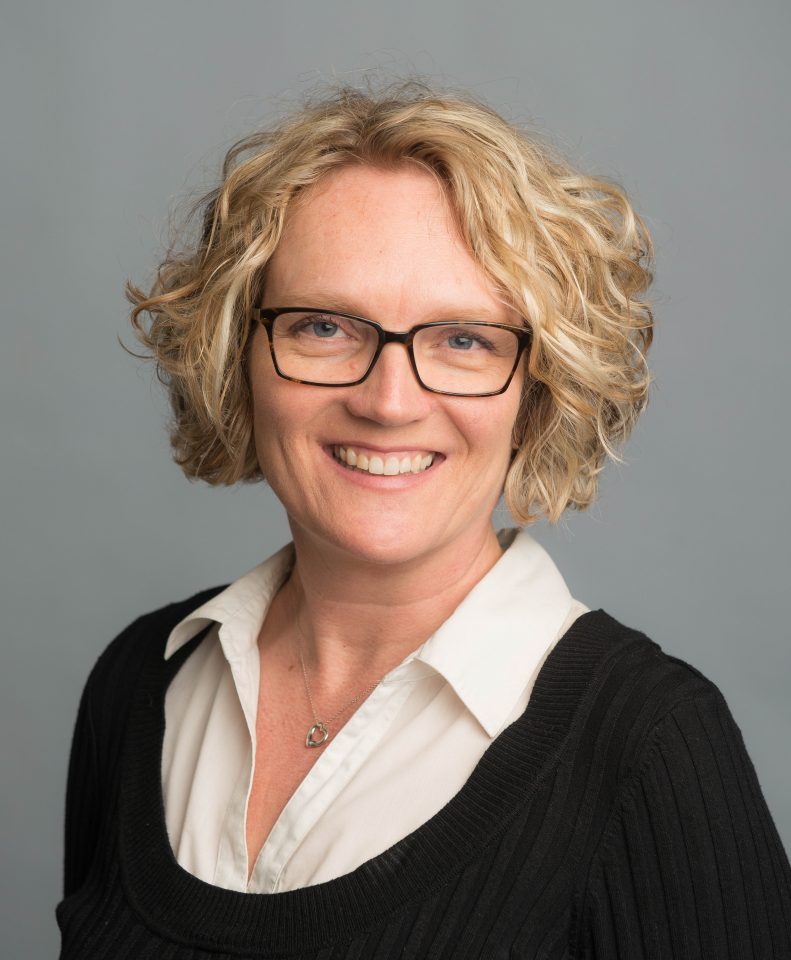
Dr. Meike Wernicke
Associate Professor
she / sie / elle
(On Leave)
Bilingual/multilingual education
Critical Intercultural Studies
Decolonizing pedagogies and knowledges
Discourse Analysis
French Language Education
Identity
Language Planning and Policy
Teacher Education
Biography
I am an Associate Professor in the Department of Language and Literacy Education at UBC. Prior to working at UBC, I spent fourteen years at Capilano University as Languages Coordinator and German Department Chair. My current scholarship in French language teacher education builds on a twenty-five-year career in modern language teaching (German and French), German heritage language education, and French Linguistics. As a settler on xʷməθkʷəy̓əm territory, my research focuses on critical multilingual perspectives in language teacher education and intercultural studies. I am especially interested in the ideological and discursive workings of language as these inform power relations, education policy, the construction of knowledge, and the lived experiences of language learners and teachers.
My research in international contexts has included collaborations at the European Centre for Modern Languages of the Council of Europe (ECML) in Graz, Austria, and a project on multilingualism in teacher education with the Koordinierungsstelle für Mehrsprachigkeit und sprachliche Bildung at Universität Hamburg, Germany. In Canada I have collaborated in multi-institutional projects coordinated by the Canadian Association of Second Language Teachers on teacher professionalization in French language education, as well as projects on curriculum implementation and the integration of decolonizing approaches and Indigenous knowledges in French language education. I am past program coordinator for the French Master of Education in Modern Languages and UBC’s Institut de français in Quebec City (2016-2023) and served on the executive of the Canadian Association of Applied Linguistics (2016-2020) and the Vancouver German School (2013-2018).
Projects
2023-2024: pē-kiyokētan – Centering Indigenous Languages in Canadian Multilingual Education
This project centers on relationship-building within an emerging network of Indigenous and non-Indigenous educators, researchers, and community practitioners who are interested in either advancing the reclamation of their Indigenous languages or to better support these revitalization efforts across official and heritage language education programs in Canada. (SSHRC Connection Grant, co-applicant)
2022-2024: A narrative inquiry into the multilingual lives of French language teacher candidates
This study examines how French language teacher candidates understand their linguistic identities in relation to processes of racialization within the context of their emerging instructional practices and professional identities, as well as the challenges and supports in validating a multilingual identity as French language educators in Canada. (SSHRC Insight Development Grant, PI)
2020-2021: Fostering diversity in scholarship and teaching in a global university community
In this study we asked how does internationalization relate to linguistic diversity in the university context, specifically the documented constraints faced by linguistically and culturally diverse populations in English-medium higher education settings. (SSHRC Explore Grant, PI)
2020-2022: Identifying Requirements and Gaps in French as a Second Language (FSL) Teacher Education: Recommendations and Guidelines
This two-year research project involved a partnership with researchers at the University of Ottawa and the University of New Brunswick with the aim to identify ways to better equip new FSL teachers for success in the early stages of their careers. (Canadian Heritage, co-applicant)
2018-2021: Engaging Second Language Teachers in Intercultural Learning: Towards Greater Self-Awareness and Agency
This study investigated critical and decolonizing approaches to engaging with intercultural learning in language education with pre-service and in-service FSL teachers in British Columbia. (Hampton Grant, PI)
Courses
LLED 352: Teaching and Learning French as a Second Language in Multilingual Settings: Elementary | Enseignement et apprentissage du français langue seconde en milieu multilingue à l’élémentaire
LLED 353: Teaching and Learning English as an Additional Language – Elementary | L’enseignement et l’apprentissage de l’anglais langue additionnelle à l’élémentaire
LLED 489: Applied Linguistics for Teachers |La linguistique appliquée dans l’enseignement du français
LLED 520: Theory and research in second language teaching |Théorie et recherche reliées à l’enseignement des langues secondes
LLED 521: Critical Intercultural Studies : Theory, research and practice | L’éducation interculturelle d’une perspective critique
LLED 590 Graduating Paper/Project | Mémoire/Projet final
Selected Publications
